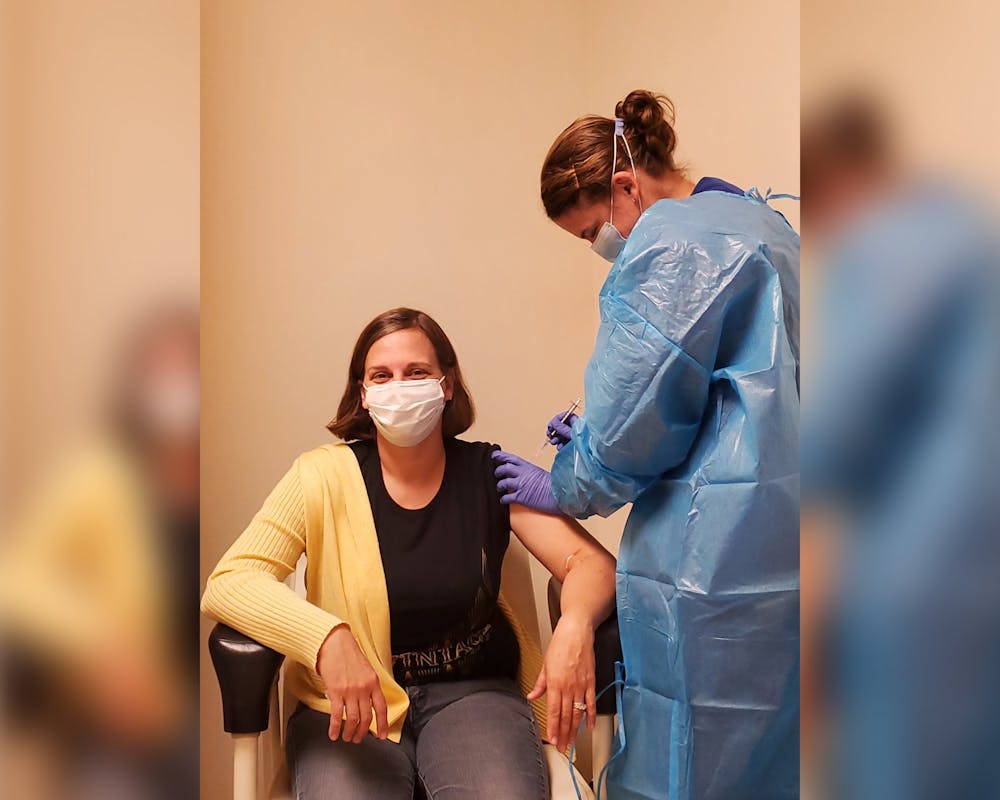The IU School of Medicine held an online press conference Tuesday where Dr. Cynthia Brown discussed progress on the COVID-19 AstraZeneca Vaccine, AZD1222. She is the lead researcher for the vaccine trial and associate professor of clinical medicine at the school.
“We are very grateful to be conducting this vitally important Phase III AstraZeneca COVID-19 vaccine trial and this is really coming at a very important time, because, as you know, we are experiencing this huge resurgence of the virus both locally and nationally," Brown said.
The IU School of Medicine began the process of enrolling applicants for the trial Oct. 29 after it was announced Sept. 3 they would be one of the testing sites for the AstraZeneca vaccine.
At this point, Brown said there are no results available for the trial, and there is no true timetable for the results, but there is a goal to have their number of participants within 6-8 weeks. Brown said they are still asking for individuals to enroll and are encouraging people to sign up because, although they have seen high enthusiasm in enrollment numbers, some people don’t qualify to participate due to complications.
According to September press release from IU, this Phase III clinical trial is the last required stage of study before the potential vaccine can be approved by the Food and Drug Administration for widespread public use.
Brown said the trial has screened more than 750 individuals by phone, and it has brought in around 200 individuals for participation in the lab.
“One of our focuses so far has been making sure that we are bringing in a diverse population of individuals that reflects our state,” Brown said. “We have been able to recruit about 9% Black individuals, 16% Hispanic and also bringing in older individuals and our individuals that are over the age of 65 represent about 15% of our population.”
Brown said she hopes to get between 1,000 to 1,500 individuals to participate in the trial which involves both the vaccine and a placebo, administered in a randomized 2 to 1 fashion. Brown said the AstraZeneca vaccine works from a different platform than other vaccines that have been created and been in the news such as Pfizer or Moderna.
But she said all of these vaccines are working to develop immunity against the spike protein, a primary way the coronavirus enters the cells to create diseases.
Bloomington resident Joe Morris, 79, another participant enrolled in the trial, said he enrolled because he thought it could help change the current state of the world and return his life and the lives of others to normalcy.
Morris said he would leave his home at least two hours a day before the pandemic.
“That all changed with COVID with the restrictions and closings,” Morris said. “I want to get back to the gym, lunch, movies, and most of all, travel. At 79, I have a few years left, but not many, and I want to enjoy them.”
He said he had not experienced any side effects or adverse reactions to the vaccine.
Ashley Meagher, a 39-year-old trauma surgeon at IU Health Methodist Hospital and surgical critical care physician, also participated in the trial and has seen the effects of the coronavirus first hand.
“The virus is surging right now,” she said. “We are seeing more and more positive patients in the hospital and anything we can do to try and minimize that would be really great.”
Meagher said she thinks it is important to reach out to minority communities when conducting the trial because without diversity it can be difficult to generalize the results. She said she understands the nervousness within minority communities around medical trials due to systematic racism and its history in medical care.
“We have to be very careful to reach out to those communities, educate them, not coerce them, but definitely make it open and really put some emphasis on ensuring diverse volunteer populations,” Meagher said.
Morris and Meagher said they were all hopeful for the results of the trial and for the future.




